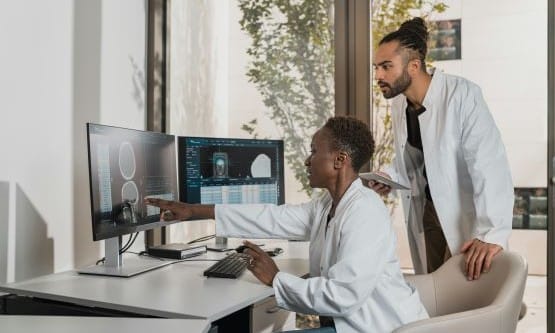Southern SHAs to pilot greater local ownership of NPfIT
- 23 November 2006
The three strategic health authorities in the south of England are piloting a new model of governance for the National Programme for IT that will shift responsibilities from NHS Connecting for Health at the centre to the local NHS.
The move is partly as a result of recommendations from the National Audit Office earlier this year that there should be greater local ownership of NPfIT but is also driven by a desire to increase the tempo of delivery of CfH over the next six to 12 months.
Board papers presented to a meeting of the South East Coast SHA last week by the SHA’s director of finance and investment say the changes are designed to ensure an effective and efficient implementation of the national programme.
The paper adds: “If implementations are to be realised at the pace and with the assurance that all parties desire, it is critical that the programme governance arrangements, structures and processes are optimised. In particular there is a need to devolve responsibilities and accountabilities around implementation from NHS Connecting for Health to SHAs as soon as possible.”
In the new structure the role of the Southern Cluster has been re-allocated to “local CfH activities” and to a proposed new Southern joint SHAs’ management board made up of the three chief executives of South Central, South East Coast and South West SHAs.
The board paper says: “The purpose of this Management Board is to maintain overall ownership by the NHS of the products and services to be delivered and when they are to be implemented. The Board will be making decisions that require the trade-off across SHAs between time, cost, scope and quality of the products and services to be delivered, in the light of the commercial framework with the LSP and the desire for localisation of products. If a decision does not have cross SHA implications, the new Board will push the decisions down to SHA Boards and beyond as required to NHS organisations.”
The reorganisation is part of the NPfIT local ownership programme (NLOP), which is running alongside the review of the NHS IT programme currently underway, as revealed by E-Health Insider last week.
Papers presented to East Midlands SHA board this week state that NLOP is being run by Mark Britnell, chief executive of South Central SHA, and involves an overarching national programme and three sub-projects, one for the South, one for London and one for the North, Midlands and East.
The national NLOP programme will flesh out the responsibilities and accountabilities which will be common to all and the sub-projects will determine the governance arrangements, structures and processes needed in each area to meet these responsibilities and accountabilities. An implementation plan is expected by early December for implementation by the end of March.
The southern project, which is to be the pilot for the other two areas, has set out its envisaged division of responsibilities in the short term which include:
- National CfH – CfH policy and programme oversight, major procurement and architecture design and requirements coordination across programmes
- Local CfH – commercial/supplier relationship management, stakeholder engagement, Design Build Test (DBT)and links to London cluster re Cerner DBT, enabling SHA deployment, maintaining and managing detailed implementation plan
- SHA – strategic development- designing an SHA blueprint, deployment support and coordination, benefits planning and review, financial management, performance management (planning and monitoring), standardisation of business and clinical processes as appropriate
- PCT – accountability for delivery of NPfIT in geographical area, direct deployment responsibility for electronic prescription service, Choose and Book , GP systems plus responsibility to assure CRS implementation in hospital trusts, delivery of benefits – EPS, Choose and Book and GP systems
- Hospital and mental health trusts – deployment responsibility for CRS and PACS, change management delivery of benefits – CRS and PACS
The board paper says the case for maintenance of functions at the CfH level will need to be reviewed on a regular basis. It adds: “The primary purpose of the CFH local office will be to act as a single point of contact for the LSP, national CFH and the London SHA concerning the design and build of a single Cerner product set across the London and southern SHAs.”
Barbara Hakin, chief executive of East Midlands SHA, told board members in her report to their November meeting this week that NHS chief executive David Nicholson wanted four things – to see a review of the technical architecture, to deal with current criticism, a review of NHS ownership and a review of whether the NHS is being too prescriptive in the programme, a piece of work which Pearse Butler, former chief executive of Cumbria and Lancashire SHA, has been asked to handle
Hakin adds: “There is clearly the view that we need to get to a stage where the local NHS can hold suppliers to account and some confusion about the current accountability and future accountability, but hopefully this will be clarified soon. “
In South East Coast SHA the board papers says the Care Records Service will be delivered in four releases by local service provider Fujitsu and will be implemented through locality based programmes with three physical instances of the Cerner Millennium product covering the three delivery patches of Kent, Surrey and Sussex.
It says that there are also deployment processes for the delivery of Choose and Book, GP Systems of Choice, the electronic prescription service and Radiology Information Systems (RIS) and PACS.
It adds: “As additional functionality such as electronic document management, pathology, child health, becomes available and is seen to offer benefit for South East Coast organisations, further programmes will be established.”
Links
Related stories
DH carrying out ‘confidential’ review of CfH




